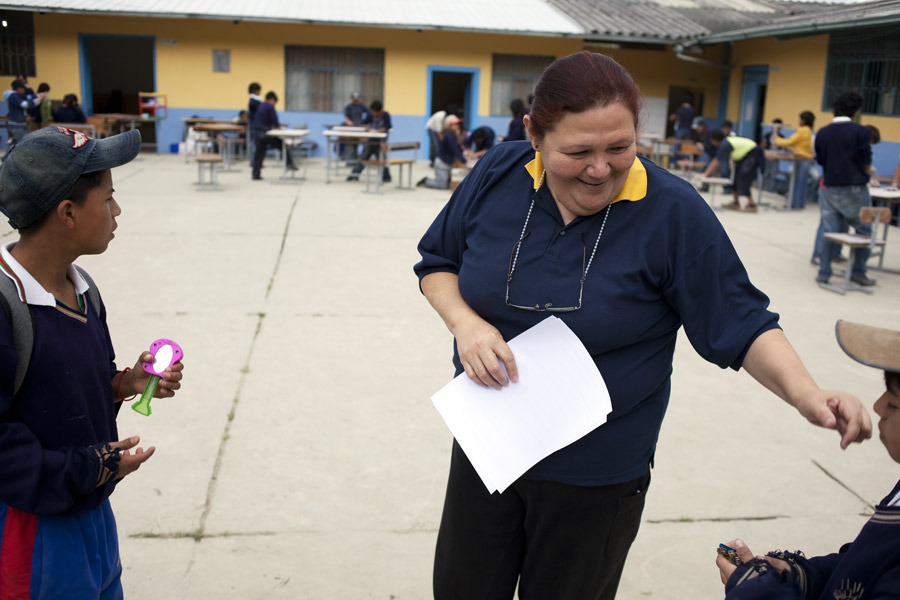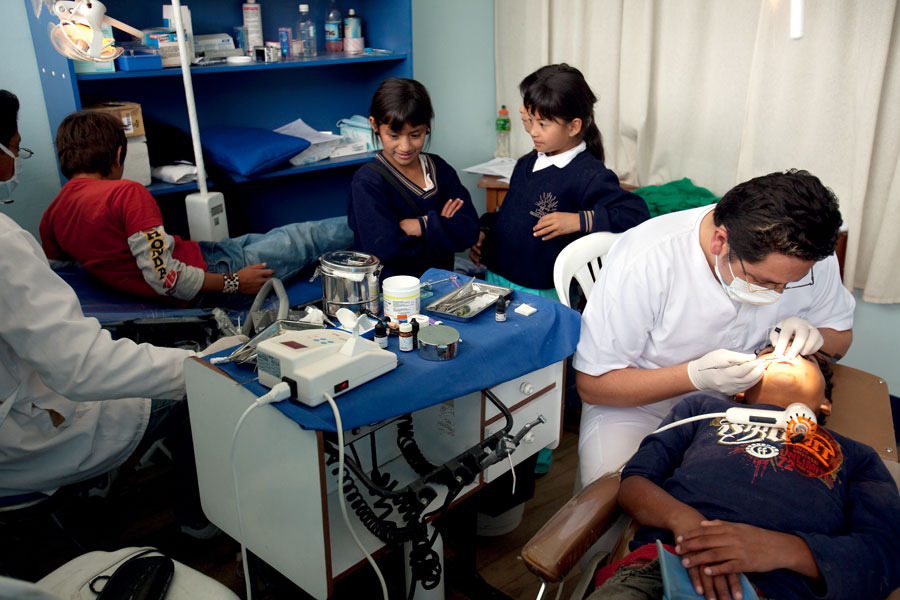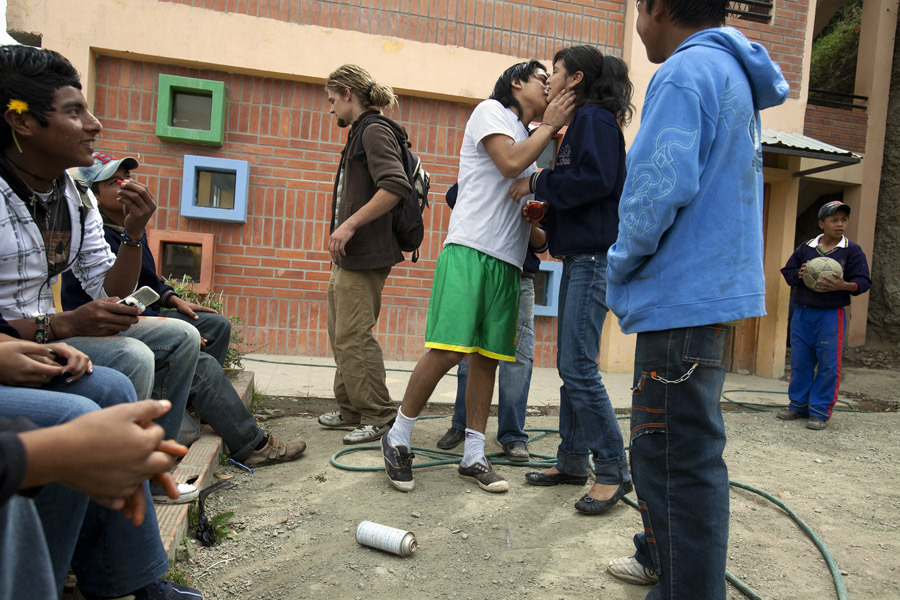
Students play in the main schoolyard of the Educare school, which is run by the Ecuadorian NGO, C.I.S.O.L., (Centro de Inciativas Sociales Latinoamericanas) in Loja, Ecuador. The K-10 school is a private school for children in Loja who come from low-income, local families. The school was founded in 2000 with the goal of enrolling children who are vulnerable to neglecting their education because they will have to work to help support their families. Each classroom represents one grade.

From left, Tereza, Milton, Eddy, David, Inti and Luz María (front row) Lozano, pose for a family portrait outside the two rooms that the family calls their home in Loja, Ecuador. The room on the left is a small kitchen and eating area and the room on the right contains two beds that all six family members share. The Lozanos are from the mainly indigenous and poor Saraguro area of southern Ecuador and came to Loja to find work. All four Lozano children attend C.I.S.O.L.’s Educare school and although not all the Educare students’ families are indigenous, the Lozanos are typical of the families whose children attend the school.

Eddie Lozano takes his sister, Liz Maria, to school from their home. The Lozano family are from the mainly indigenous and poor Saraguro area of southern Ecuador and came to Loja to find work. All four Lozano children attend C.I.S.O.L.’s Educare school.

Seventh grade teacher Margoth Iriarte talks to student Juan Zapata at C.I.S.O.L.’s Educare school in Loja. In 2008, 186 students attended classes at the school.

Rosa “Noshy” Rodriquez talks to students in the courtyard of the Educare school in Loja, Ecuador. Rodriguez is the current principal of the school and has worked on child labor issues most of her career. Before becoming an administrator for the school Rodriguez worked as an anthropologist/sociologist for C.I.S.O.L. investigating child labor in Ecuador and published reports for the United Nations and other organizations.

Educare student Leidy Medina sharpens her pencil with a razor blade during class. Families must apply to enroll their children in the Educare school and then pay tuition based on a sliding scale that goes as low as $5/year.

In 2008, C.I.S.O.L. served 52,200 free meals to its Educare students. Although a free lunch may seem like a trivial normality, it is an important factor in the success of the school and in these children’s futures. Many of the students’ families live in extreme poverty and the children work to help support and feed their families, thus neglecting their educations and perpetuating a cycle of poverty. Providing free lunch to the students eases the economic burdens on their families and increases the chance the children will be able to finish their educations.

Students listen to a lesson by seventh-grade teacher Margoth Iriarte at C.I.S.O.L.’s Educare school in Loja. In 2008, 186 students attended classes at the school.

Dental medicine student Ricardo Pardo, right, works on student Javier Guaillas’s teeth in a small dental facility set up in a spare room on the Educare school’s campus. Pardo is a 4th year dental student at the nearby Universidad Nacional de Loja and volunteers his services to C.I.S.O.L. so he is able to use data from the students to complete his thesis and his dental degree. Since C.I.S.O.L. was opened specifically to be a low to no-cost education they rely on grants and donations from domestic and international partnerships for their survival. Working with professionals like Pardo and a regular staple of international volunteers from a partnership with C.I.S.O.L. Switzerland bolsters the services they can offer to students. Students also get a physician’s consultation and medical attention as part of their schooling—something they may never get at home.

Martin Guaman kisses Thalia Salinas during a game of "spin-the-bottle" during the last day of the regular 2009 school year.

Fans cheer on soccer teams during C.I.S.O.L.’s end-of-the-year/Día de la Familia celebration. Although the families that send their children to the school do so because they do not have much money, they are involved in their children’s lives and the school. The school is an opportunity for families to provide their children with an education they may not have not had access to themselves.

Students paint their desks on the roof on the last day of school.

Javier Guaillas looks out the window during a school field trip that included going to the beach in Portoviejo. Guaillas and many of the other children has never seen the ocean before this trip.

Eddie Lozano takes a break from shoveling sand into the back of a dump truck near his house. On this day, Eddie decided to stay home and work to make some extra money instead of going into the last day of school. The danger that is constantly present for the children that attend the Educare school is that they or their families will trade the immediate gratification of work and money for school attendance thus neglecting their education and perpetuating a cycle of poverty.
